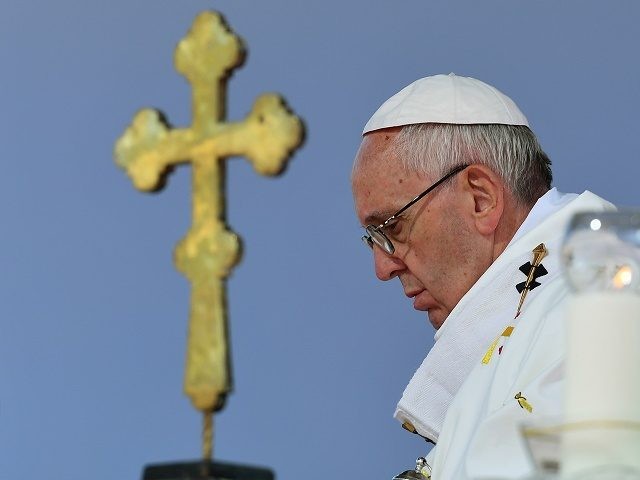ROME — Pope Francis urges Christian missionaries to bear witness to Jesus with joy and simplicity, while avoiding proselytism, elitism, isolation, and self-absorption.
Missionary activity is “the work of the Holy Spirit and not the consequence of our ideas and projects,” the pope said in a ten-page letter Thursday to the Pontifical Missionary Societies, while warning his readers to beware of “the presumption of self-sufficiency” as well as the temptation to “commandeer Christ’s flesh” for “narrowly clerical projects and aims.”
Though ostensibly a message of encouragement and motivation, the pope’s letter has an underlying tone of disapproval that often comes across more like a scolding than a pep talk.
In a lengthy section on “pitfalls to avoid,” for instance, Francis observes that missionary organizations and agencies “sometimes end up turning in on themselves, devoting energy and attention primarily to promoting themselves and to advertising their own initiatives” while others “seem to be dominated by an obsession to continually redefine their own importance and their own bailiwicks within the Church, under the guise of relaunching their specific mission.”
“An elitist feeling, the unspoken notion of belonging to an aristocracy, takes hold at times among those who are part of groups and organized institutions in the Church,” the pope continues, “a superior class of specialists who strive to increase their own influence in collusion or in competition with other ecclesiastical elites, and train their members according to secular notions of activism or technical-professional competence, but always with the main goal of promoting their own oligarchic privileges.”
Even in the presumably positive section on characteristics of Christian mission, however, there is an unmistakable tone of displeasure in the pope’s missive.
“‘Going forth’ on mission to reach human peripheries,” Francis writes, “does not mean wandering without direction and meaning, like those frustrated vendors who complain that people are too unsophisticated to be interested in their wares.”
As he has done on numerous occasions, the pope warns against “proselytism,” or the effort to convince people of the truth of Christianity. It is not arguments from reason, but rather the “joy that radiates from those attracted by Christ and by his Spirit” that makes any missionary initiative fruitful, he insists.
The pontiff also asserts that the motivation for missionary witness must always be personal gratitude, since “it is useless and above all improper to insist on presenting missionary activity and the proclamation of the Gospel as if they were a binding duty, a kind of ‘contractual obligation’ on the part of the baptized.”
It is unclear how this assertion squares with Saint Paul’s insistence that preaching the gospel is “an obligation laid on me” and “woe to me if I do not proclaim the gospel!”
It is likewise unclear how it jibes with official Catholic teaching that the baptized “must profess before men the faith they have received from God through the Church and participate in the apostolic and missionary activity of the People of God.”
Missionaries must be humble, Francis notes, since pride only drives people away.
“One can never think of serving the Church’s mission by employing arrogance as individuals and through bureaucracies, with the pride of one who misunderstands even the gift of the sacraments and the most authentic words of the Christian faith, seeing them as merited rewards,” he states. “One cannot be humble out of good manners or the desire to appear attractive.”
The pope’s letter was released to coincide with the Christian feast of the Ascension of the Lord, which commemorates Jesus’ return to heaven 40 days after his resurrection.
On that occasion Jesus told his disciples: “you will be my witnesses in Jerusalem, throughout Judea and Samaria, and to the ends of the earth,” which, together with his “missionary mandate,” is considered the foundation of all Christian missionary work.

COMMENTS
Please let us know if you're having issues with commenting.